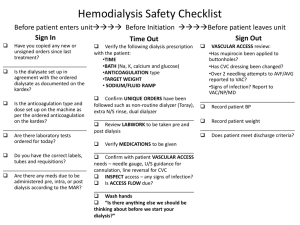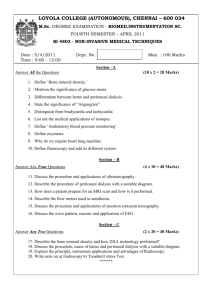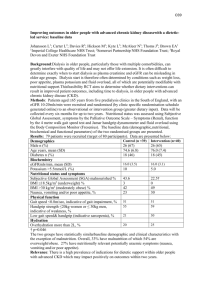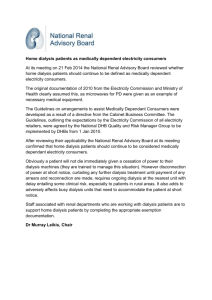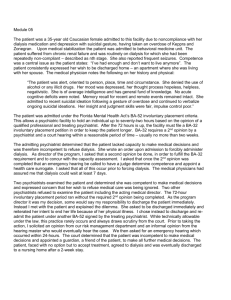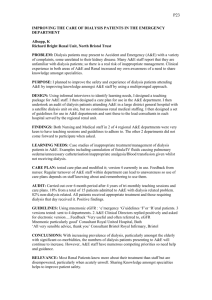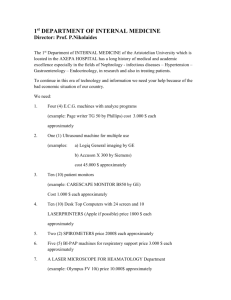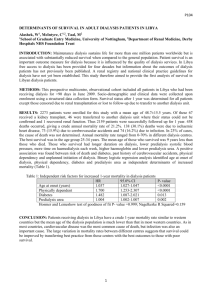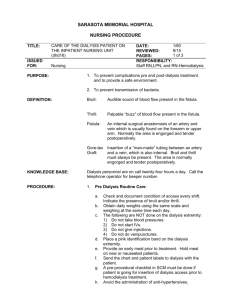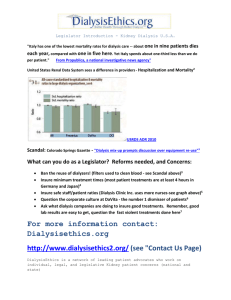My thoughts re rehab programme pilot
advertisement
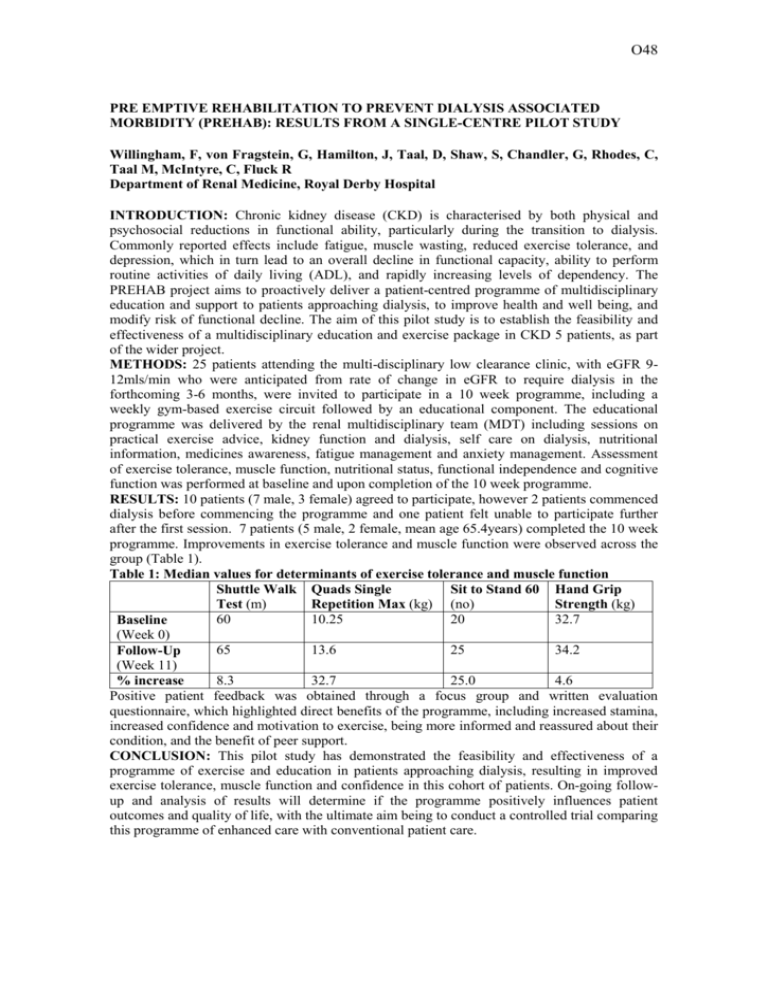
O48 PRE EMPTIVE REHABILITATION TO PREVENT DIALYSIS ASSOCIATED MORBIDITY (PREHAB): RESULTS FROM A SINGLE-CENTRE PILOT STUDY Willingham, F, von Fragstein, G, Hamilton, J, Taal, D, Shaw, S, Chandler, G, Rhodes, C, Taal M, McIntyre, C, Fluck R Department of Renal Medicine, Royal Derby Hospital INTRODUCTION: Chronic kidney disease (CKD) is characterised by both physical and psychosocial reductions in functional ability, particularly during the transition to dialysis. Commonly reported effects include fatigue, muscle wasting, reduced exercise tolerance, and depression, which in turn lead to an overall decline in functional capacity, ability to perform routine activities of daily living (ADL), and rapidly increasing levels of dependency. The PREHAB project aims to proactively deliver a patient-centred programme of multidisciplinary education and support to patients approaching dialysis, to improve health and well being, and modify risk of functional decline. The aim of this pilot study is to establish the feasibility and effectiveness of a multidisciplinary education and exercise package in CKD 5 patients, as part of the wider project. METHODS: 25 patients attending the multi-disciplinary low clearance clinic, with eGFR 912mls/min who were anticipated from rate of change in eGFR to require dialysis in the forthcoming 3-6 months, were invited to participate in a 10 week programme, including a weekly gym-based exercise circuit followed by an educational component. The educational programme was delivered by the renal multidisciplinary team (MDT) including sessions on practical exercise advice, kidney function and dialysis, self care on dialysis, nutritional information, medicines awareness, fatigue management and anxiety management. Assessment of exercise tolerance, muscle function, nutritional status, functional independence and cognitive function was performed at baseline and upon completion of the 10 week programme. RESULTS: 10 patients (7 male, 3 female) agreed to participate, however 2 patients commenced dialysis before commencing the programme and one patient felt unable to participate further after the first session. 7 patients (5 male, 2 female, mean age 65.4years) completed the 10 week programme. Improvements in exercise tolerance and muscle function were observed across the group (Table 1). Table 1: Median values for determinants of exercise tolerance and muscle function Shuttle Walk Quads Single Sit to Stand 60 Hand Grip Test (m) Repetition Max (kg) (no) Strength (kg) 60 10.25 20 32.7 Baseline (Week 0) 65 13.6 25 34.2 Follow-Up (Week 11) 8.3 32.7 25.0 4.6 % increase Positive patient feedback was obtained through a focus group and written evaluation questionnaire, which highlighted direct benefits of the programme, including increased stamina, increased confidence and motivation to exercise, being more informed and reassured about their condition, and the benefit of peer support. CONCLUSION: This pilot study has demonstrated the feasibility and effectiveness of a programme of exercise and education in patients approaching dialysis, resulting in improved exercise tolerance, muscle function and confidence in this cohort of patients. On-going followup and analysis of results will determine if the programme positively influences patient outcomes and quality of life, with the ultimate aim being to conduct a controlled trial comparing this programme of enhanced care with conventional patient care.
